"To pray a man"
Horrible find
The end of the nineteenth century turned out to be difficult for the inhabitants of Vyatka province. In the summer of 1891, a terrible epidemic of typhus covered the territory, to which was added a crop failure. By order of St. Petersburg, the entire province was taken in quarantine, and on its borders appeared a kind of “roadblocks”. All people who tried to go beyond the quarantine zone or get there were subjected to the strictest inspection and verification of documents. Since the real threat of mass famine hung over the region, the peasants began to issue "bread loans", that is, a state grain. The authorities and Orthodox priests actively helped, calling on the local people to humility and repentance. Udmurt sorcerers with shamans did not stand aside either. Without fear of reproach and persecution, they began to openly ask their pagan gods for deliverance from contagion and a bountiful harvest.
Inhabitants of Starotryk volost of Malmyzhsky district drank a bitter cup along with their neighbors. Only here, two villages bypassed for some unknown reason. We are talking about the settlements of Old and New Multan, where votyaks mostly lived, as the Russian provinces called Udmurts. But she didn’t pass by the neighboring villages of Anika and Chulya, in which the Russians lived. All this made people talk and think about various udmurts Udmurts.
On May 5, 1892, sixteen-year-old Marfa Golovizin, went from Anik to Chulia to visit her grandmother. To the neighboring village could go in two ways. The first was on a good road, but it took too much time. The second went through the forest and swamp. Marfa decided to close the distance and boldly went to the swamp. Suddenly, on a narrow tropic, she saw a man lying covered by a raincoat. Thinking that she was drunk, she passed by and didn’t even look at him. The very next day, Martha was walking back. This time all the same man interested her. When she came closer, she noticed that the cloak would be thrown off and ... the man had no head. Frightened, Golovizina hurried home. Girl's father after listening historyimmediately summoned the guards.
The police were able to reach the crime scene only on the eighth of May. Another two days it took bailiff Timofeev to initiate a criminal case of murder. Then a doctor came and found that the head was cut off from a still living person, so the trachea was clogged with blood. The search for the missing head did not lead to anything. But in a knapsack the men managed to find a certificate from the hospital. It said that Konon Dmitrievich Matyunin was absolutely healthy.
At the same time, a certain Kobylin from Anyk told the bailiff about the tradition of “praying at people”, that is, about human sacrifices to which the Udmurts sometimes resorted. Timofeev decided to start an investigation with a visit to Old Multan. By the way, the headless corpse was also delivered there. Residents dug a hole, filled it with ice, and then placed the body there. In the self-made morgue, he had to wait for the medical examiner to arrive.
The bailiff's interest was quite explicable. He was well aware of the fact that the vatiaks did not forget the pagan faith of their ancestors, which in no way prevented them from visiting churches and temples. Russian residents of nearby villages now and then talked about how they combined Orthodoxy with animal sacrifices. For example, they cut off their heads, removed hearts, lungs, and livers, and then ate them. And the Russians, who were called to testify, only added fuel to the flames of the burning international conflict. They argued that fearing hunger, vayaks more and more often killed animals for the sake of the pagan gods and looked crookedly at people. Timofeev judged, albeit briefly, but health ritual murder.
At that time, one hundred and seventeen families lived in Old Multan, of which Russians were three times less. As for votyaks, they lived in two tribes - uchurkami and budluk. By the way, they prayed and worshiped various gods. Accordingly, the rituals were held in separate huts intended for adherents of a particular version of the pagan faith.
The assistant district attorney Rajewski soon arrived in Multan. He looked into the hut of Votyak Moses Dmitriev and found in it the dishes stained with dried blood. Dmitriev said that the blood was chicken, and he had not used the dishes since Easter itself.
On June 4, the county doctor Minkevich finally reached the village. He found that the deceased besides his head had no lungs and heart. Doubt that Matyunin was the victim of a ritual murder no longer remains. And Dmitriev was immediately arrested.
Then the witch-hunt began. The constable Rogozin found out that a boy had drowned in one of the neighboring villages two decades ago. His death, too, was considered a sacrifice perfect by the servants, only disguised. Rogozin was not lazy and visited the boy’s mother. After hearing her story, he was convinced that he was right, because the woman was “afraid of reprisal.”
Meanwhile, the guards decided to interrogate the "village idiot" Mikhail Titov, who lived in Old Multan. Interest in him did not appear from scratch - he was a relative of the chief shaman of the ninety-year-old Andrei Grigoriev, nicknamed grandfather Akmar. After sitting in the basement, Titov recalled that the head of the peasant community, Semyon Krasny-Ivanov, had identified a certain traveler, who had glanced into Old Multan on the night of the fifth of May, for the night to see Vasily Kondratyev. Accordingly, the police have new and suspects, and those arrested. Then we managed to find out that Moses Dmitriev, while hiking in the woods, was accompanied by Kuzma Samsonov, the slaughterman. He was immediately arrested, accusing him of cutting off Matiunin’s head and pulling out his internal organs. There was no evidence against Samsonov, but a person with such a profession could not be beyond suspicion.
After the repeated search of Dmitriev's hut, ritual dishes were nevertheless decided to be attached to the case. It remained the most difficult - to find out whose blood is dried on it? Since at that time the examination could not yet distinguish between animal and human blood, they decided to try the old-fashioned way. Then there was the opinion that in such situations the best expert is a dog. If she starts to lick her, then the blood belongs to the animal. And if he turns away - to a man. They brought the dog and she, to the delight of the guards, just sniffed the bowl. True, during the trial, doctors and veterinarians said that the dog’s disgust for human blood is only fiction, but this argument will not interest anyone.
Soon a new suspect appeared. The contractor Zhukov, who often visited Old Multan, owed the local Vasiliy Kuznetsov a dozen chervonets. Not returning the debt, he asked for loans again, but Kuznetsov refused. Then Zhukov suddenly remembered that it was Vasily who, on the night of May 5, was the guard in the village, and informed the authorities about this. Kuznetsova, of course, was immediately arrested. This detention turned out to be out of the ordinary, since Vasily was not only Russian, but was also a church headman. The local father tried to intercede for him, telling him that for many decades the voyaks had been regularly attending church, having forgotten the rites of their ancestors, but he was not listened to. Moreover, the priest was soon removed from office and was almost accused of complicity with the pagans.
The police decided to help Michael Kobylin, the brother of the already mentioned Sosipatra. Michael became a kind of expert on local religion. He said that once in forty years, warriors offer human sacrifice to the supreme god Kurbon. And it is important that it was a different people and a different faith. In general, the Russian population fit perfectly. Police assistance Kobylin explained the desire for justice, but in fact it was all more prosaic. One day, the policemen accused him of robbery, and he trivially wanted revenge.
By this time, we managed to find out who the late Matyunin was. He turned out to be a peasant from Kazan province, who left his small homeland due to lack of work. The guards found out that he was sick with epilepsy - a "epilepsy".
Gradually, the case began to overgrow with the testimony of new witnesses. So one boy said that he had heard the conversation votyakov. One of them had a terrible dream and that in order for it not to come true, it is necessary to pray the devil. Why the hell, the police did not understand. And the list of the arrested increased by another few people.
In the spring of 1893, the decrepit old man Ivantsov testified (at that time he was already over a hundred years old). He spoke about how votyaki wanted to sacrifice him to his god. The old man was silent about the fact that there was a banal household conflict more than half a century ago between him and Udmurts. This became known already at the trial. Ivantsov just wanted to get even for the old offense.
Rajewski, however, was able to "recreate the picture of the crime." According to his version, Red-Ivanov lured Matyunin to the house of Kondratieff. Here he drank it and dragged it into Dmitriev's family hut. After that he was hanged by the legs to the beam, his head was cut off, his internal organs were taken out and blood was collected. When the ritual was completed, the body was thrown into the swamps.
Surprisingly, one more thing: a case that happened several years earlier was attached to the Votyak case on ... New Land! There, a crazy Evenk, in order to appease his god, offered him a girl from his own tribe. All this allegedly proved the bloodthirstiness of the pagans.
There were a few more testimonies and testimonies that unanimously claimed that the men were murderers.
Court sessions
The investigation lasted more than two years. And only at the end of 1894, Rayevsky did prepare the case for transfer to the court. The trial began on December 10th. Since the defendants had no money for defense, they were provided with an appointed attorney, Mikhail Dryagin. Surprisingly, this man took his work seriously. But initially there was almost no chance of a successful outcome for the meeting. The fact is that the president of the court clearly sympathized with the accusation and did not even try to disguise his position. Therefore, the meeting sometimes resembled a performance at the circus. He constantly deprived Dryagin of words, did not pay attention to his requests and comments. But he almost applauded Rajewski’s speech, closing his eyes to numerous violations and inconsistencies. For unknown reasons, many witnesses who could testify in favor of votyaks did not bother to call. Their testimony was read by the prosecutor, while he missed important points and pulled the phrase out of context. In addition, when the word still reached unfortunate Dryagin, the prosecutor now and then interrupted him and tried to confuse the lawyer. But despite the circus, the jury did acquit the three accused. The efforts of the prosecution were not justified, no one understood what the fault of the peasants was. The fourth warrior - the very sorcerer Andrei Grigoriev - did not live to see the court. A ninety-two year old man died in a cell. But the remaining seven defendants were found guilty of the ritual murder of Matyunin. They were sentenced to different terms of penal servitude.
It seemed that the “Multan case” would officially close on this. But indignant Deryagin did not give up. Instead of forgetting about the warriors, he sent a protest to the cassation department of the Governing Senate. In it, the lawyer colorfully painted all the numerous and flagrant violations that took place during the trial. The protest fell into the hands of chief prosecutor Anatoly Kony, a legendary lawyer. He reviewed it and granted Deryagin’s petition. On the recommendation of Kony case sent for new consideration.
Rajewski was frantic. In a short time he had to patch up numerous holes in the indictment, but he did not know where to get the “threads”. Therefore, I decided to go for broke and ordered ethnographic expertise from the professor of Kazan University, Ivan Smirnov. As a result, it turned out on the contrary, the report of Smirnov, albeit unwittingly, but questioned some points of the indictment.
The re-meeting began on September 29, 1895, in Sarapul. Smirnov confirmed that votyaks are really in the habit of human sacrifice. But the discrepancy occurred with the conclusions made by the guardians of order. In his report, Rajewski noted that the pagans paid "executioner Samsonov," and the professor said that the rituals of vatiaks were never connected with money. But Deryagin for some reason did not draw attention. And the second time, seven volunteers were found guilty.
But this time the lawyer of the accused did not give up. He again filed an appeal, stating that he was not allowed to call important witnesses to the meeting - that trinity, justified during the first meeting. The case for the third time was sent for review. Curiously, many years later, Koni confessed that the repeated cancellation of the sentence was greatly displeased and worried by the Chief Prosecutor of the Most Holy Synod, Konstantin Pobedonostsev, an ardent supporter of militant Orthodoxy and the destruction of any manifestation of paganism. But he could not intervene, because the Vityak case was already made public.
This time, among the defenders of the Udmurts, an influential man appeared - journalist and writer Vladimir Korolenko. Moreover, the well-known defender of the humiliated and offended approached the case thoroughly. Vladimir Galaktionovich had previously visited the village, talked to local residents (both Russians and Votyaks), inspected the crime scene. After that, he issued a series of articles on the “Voyatsk sacrifice,” published in the Russian wealth magazine in St. Petersburg. When the “Multan case” acquired a wide public response, he managed to agree with the main star of jurisprudence of that time - Nikolay Karabchevsky. Given the status of a lawyer, his services were fabulous money, but he agreed to protect free of charge votyakov. The benefit for Karabchevsky was obvious - the victory promised to make his star even brighter. And it was a sin not to take advantage.
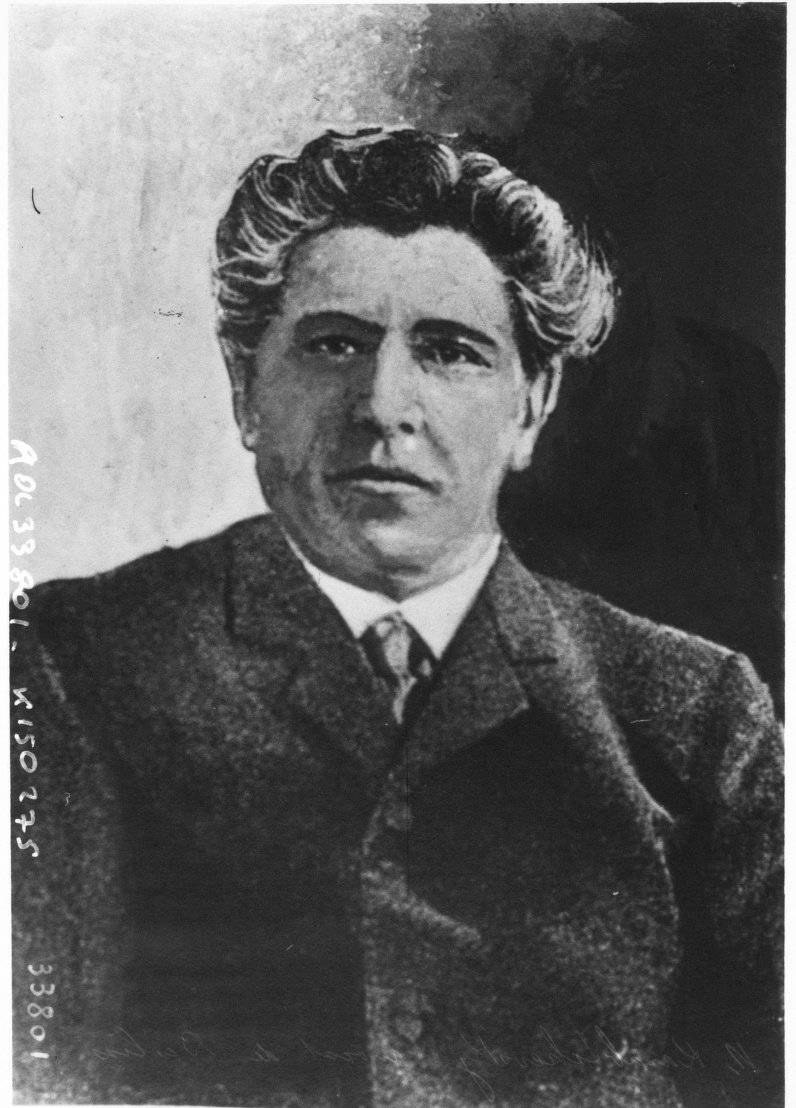
The third court hearing, held in Mamadysh, Kazan province in June 1896, was completely different from the previous ones. In addition to famous people who took the side of Votyaks, many journalists were present in the hall. The prosecution could not oppose Karabchevsky. An expert attorney ethnographer Grigory Vereshchagin was able to prove that “tempering people” is just a fiction, a horror story for disobedient children.
Step by step, Karabchevsky smashed evidence of the guilt of the soldiers. He reminded the judges of the illness Matyunin and said that he could not drink alcohol because of this. Accordingly, this refuted the version of Rajewski that on the evening of May 4, Matyunin visited the village, which some residents of Old Multan saw while intoxicated. Then Karabchevsky destroyed the version of the murder put forward by Rajewski. It turned out that Matyunina could not be hanged by their feet from the ceiling, since the height of the hut was one hundred sixty-seven centimeters, and the height of the victim was one hundred seventy centimeters.
The lawyer finished his speech with a spectacular point. It turned out that on the night of the fourth to the fifth of May, a bailiff Timofeev spent the night with Moses Dmitriev, the man who began the unraveling of the “Multan case”. And if a ritual murder had actually occurred in the hut, Timofeev, in any case, would notice something amiss. The bailiff did not argue with that.
After the meeting, the court acquitted votyakov. A few weeks later, because of the intense heat, the swamps gradually began to dry out, and we managed to find the skull of Matyunin.
A year later, the crime version of the professor of forensic medicine, Theodosius Patenko, appeared. He stated that Matinin was killed by two Russian peasants living in the village of Anik. According to the professor, they deliberately beat the crime as a ritual murder in order to substitute the hated votyaks. True, the names of Patenko did not name. They became known much later - in 1932. Annyk resident Timofey Vasyukin confessed to the murder during the death confession, and at the same time named his accomplice, Yakov Koneshin. The peasants thought that in this way they would succeed in evicting the heathen from Old Multan. And the vacated lands will be given to the Russian population of the village. But the plan, which seemed perfect, did not work.
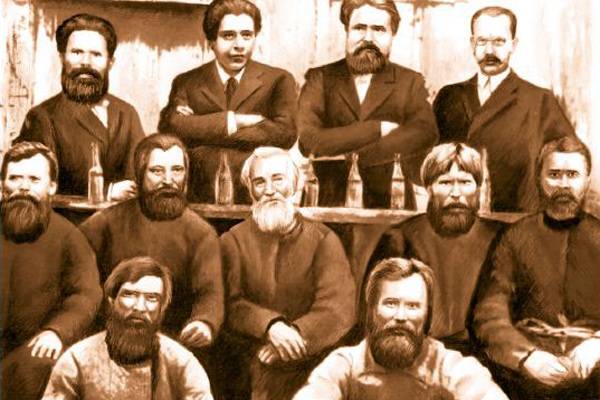
By the way, in Soviet times, Old Multan was renamed into the village of Korolenko.
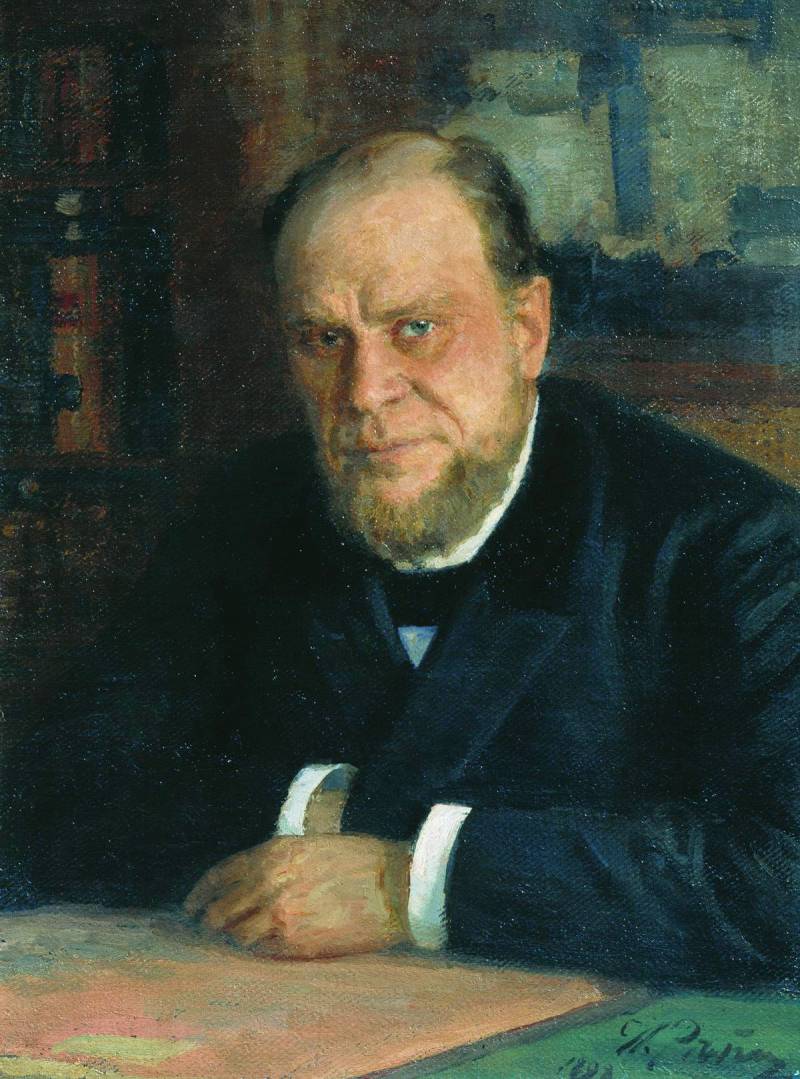
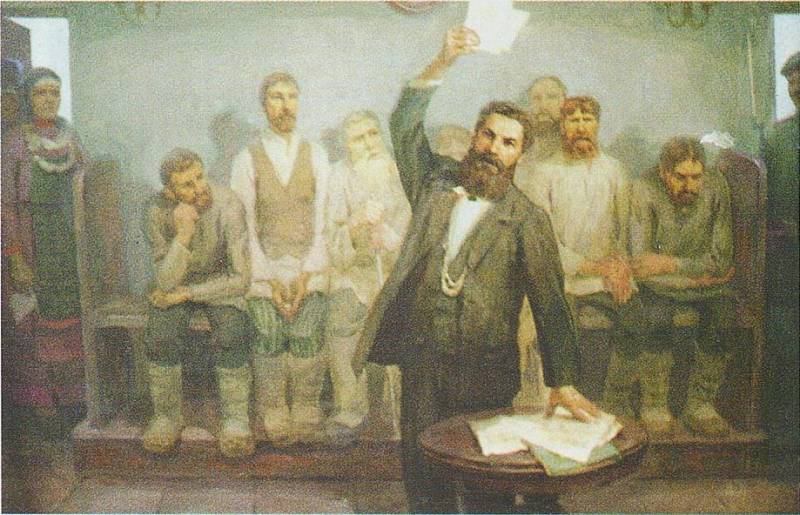
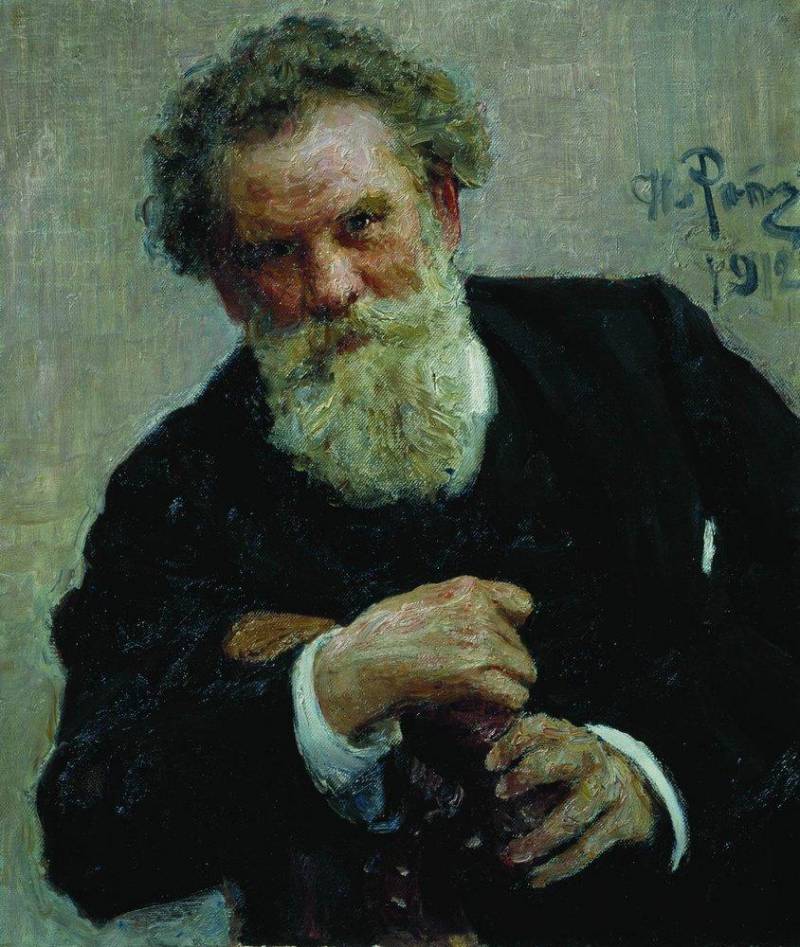
Information